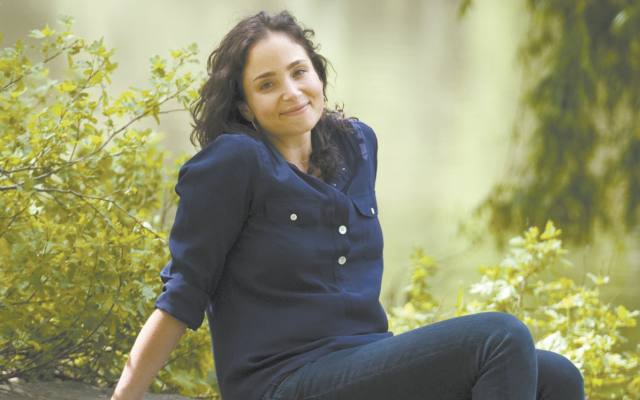Writing Through Personal Grief
Hear from author Zoe Fishman in her own words.
When she started her latest novel, Atlanta author and teacher Zoe Fishman really didn’t understand the depth of grief about which she wrote. She had submitted a proposal for “Invisible as Air” to her publisher about a family of three coping with the loss of a child-sibling, when her husband died two years ago. Then, as she was finishing the novel earlier this year, her father died.
In between, she poured out a bit of her internal grief onto the pages, she said in a phone interview. “I knew I wanted repressed grief to be a large part of the story.” The fact that her tragedy and that of the book characters experienced a “terrible life-altering gulf felt like coincidence. I channeled a lot of the complications of our grief as I wrote Sylvie’s, even though we had different situations, we had lost different people, which brings a lot more depth to her pain, as well as her husband and son.”
In terms of relating to the stillbirth at the center of the story, Fishman had a miscarriage between the births of her sons six weeks into the pregnancy. “I remember how disconcerting it was. I felt betrayed by my body, concerned I would not be able to have another child. I felt very alone.
“I could not imagine the pain of carrying a child to term and delivering it, knowing it would not live. I can only imagine the PTSD” and the reaction from the community seeing a mother pregnant one day and then not knowing the outcome, she said.
In writing the novel, Fishman tried to gain an understanding of “Sylvie’s bitterness and resentment of Paul, her husband.”
For the surviving child, Teddy, Fishman explored the “unfairness of death at such a young age,” she said.
“My sons were 5 and nearly 2 years old, much younger” than Teddy. “Certainly, it was the most painful moment in my life to deliver the news [of their father’s death]. I will never forget that moment, their faces in disbelief as the words came out of my mouth. I channel that pain into Teddy’s realization as a character.”
“Invisible as Air” also delves into the national epidemic of opioid addiction, which can affect even upper middle-class families such as the Jewish one in the novel. She believes mothers are especially vulnerable in our “overworked, overstressed society.”
Having been prescribed a pain killer after the birth of both of her sons, “I enjoyed the feeling of being altered. I can see how with immediate access to a drug, you could become addicted. You can function and even those [closest to you] could be oblivious to it.”
In many ways, this novel, her fifth, offered an escape from the responsibilities of parenthood and a chance to deal with her personal loss, she said.
“Writing this book saved me. I had to unravel his life and put our lives back together. I was also a single mother and single parenting is … relentless.” The book-writing process was a treasured time for self-reflection “lost every day trying to give my kids some normalcy.”




comments